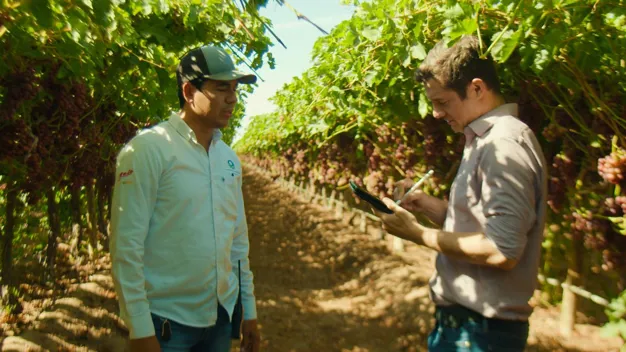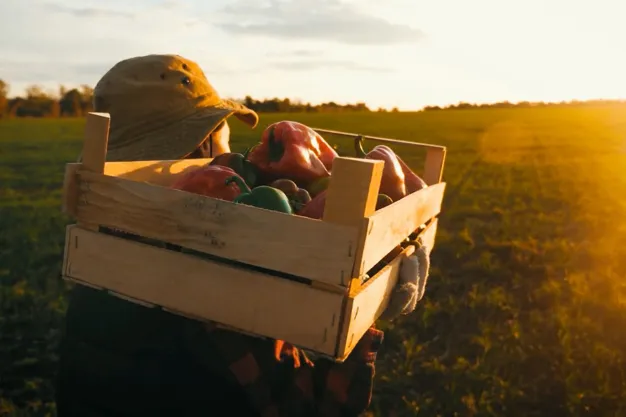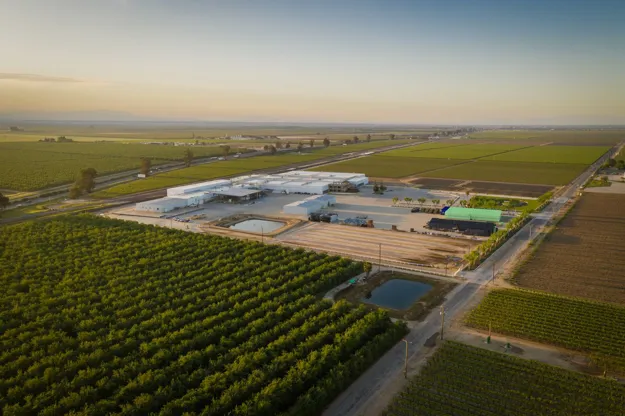Back in 2015, Pablo Borquez Schwarzbeck, a fourth-generation farmer from Mexico, founded ProducePay. The company offers a financing solution for growers and distributors of fresh produce and was founded with the idea to help Latin American farmers export their products to the United States. “About two-thirds of produce imported into the US is from Latin America,” says Pat McCullough, the company’s CEO. “Pricing wasn’t always adhered to, and sometimes contracts were broken.” In the process of helping farmers bring their products to market, ProducePay aims to increase trust and transparency within the industry. In addition, an efficient process helps reduce food waste.

Founder Pablo Borquez Schwarzbeck on the right.
Short-term working capital How does the company’s concept work? “We invest in growers by providing pre-season working capital, access to a network of trusted growers and buyers, and trade financing,” said Mccullough. Conversations with (potential) customers start after products from the current season have been harvested and sold. “That’s when we start preparing for next season.”
How does the company’s concept work? “We invest in growers by providing pre-season working capital, access to a network of trusted growers and buyers, and trade financing,” said Mccullough. Conversations with (potential) customers start after products from the current season have been harvested and sold. “That’s when we start preparing for next season.”
ProducePay provides short-term working capital that farmers can use to pay for input and harvest costs, for instance. “Depending on the size of the deal, we provide working capital advances of 10 to 40 percent.” Agreements between ProducePay and growers are made for one year and renewed each season. “On a dollar basis, we have a 100 percent renewal rate,” said McCullough. The company works with 54 commodities, including grapes, avocados, berries, tomatoes, and exotic fruits.

Outside Mexico, ProducePay works with growers in Peru, Chile, Colombia, Ecuador, and Guatemala. “Peru is quickly becoming our largest market. This year, we’re doing more than $1 billion in principal advances globally, and we expect to double next year.” In addition, offices are being opened in Costa Rica and the Dominican Republic and Brazil is actively being looked at. “While our presence is most significant in the Americas, we are also involved in several countries in Europe. We are working with customers in the Netherlands and Spain but also with a kiwi fruit grower in Italy.” Offices in the UK, Germany, France, as well as South Africa, Morocco, and Kenya will follow.
The company also provides working capital during and post-harvest with its Quick-Pay service, which helps growers cover unexpected costs during harvest, get paid faster on shipments, and vertically integrate. “Going vertical is an attractive proposition for many growers because it allows them to capture anywhere between 8-12 percent additional margin that would otherwise go to value-added supply chain partners. It also puts significant cash flow strains on the business because they are no longer getting paid by a middleman. QuickPay helps them capture that margin and improve their cash position.”
Direct-to-retail program
Just a few months ago, ProducePay started a partnership with Four Star Fruit on a direct-to-retail fresh produce supply chain program for US retailers. “The number one buying concern for retailers is surety of supply. This program helps retailers secure year-round availability of high-quality produce with stable pricing,” said McCullough. As an example, he mentioned the tight California grape situation as a result of Hurricane Hilary. “It is in the retailer’s interest to get a fixed price for next season now. By enabling 80 percent less rejection rates, we’re providing the predictability that retailers and growers crave.” In addition to the security of supply, the program aims to offer growers as much revenue as possible and to provide them with greater long-term financial sustainability.

The direct-to-retail program originated with table grapes. “We are looking to grow the program under the condition that growers have a track record of delivering and growing the right varietals. In the future, our grape program could potentially contain one-third of all grapes grown in Mexico.” While the direct-to-retail program started with grapes, a similar program will be launched for avocados and melons later this year. Programs for tomatoes as well as peppers are also in the works.
 For more information:
For more information:
Keely Wachs
ProducePay
Tel.: (+1) 510-407-0512
keely@producepay.com
www.producepay.com
